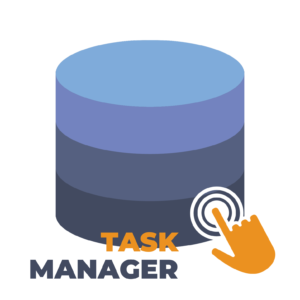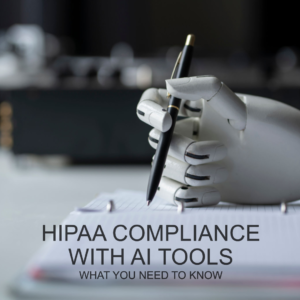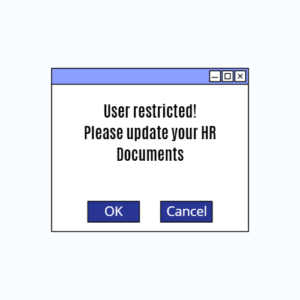 Introducing the Task Manager
September 13, 2023
We want to announce an update to our software, revolutionizing the way you interact with the platform, making it more…
Introducing the Task Manager
September 13, 2023
We want to announce an update to our software, revolutionizing the way you interact with the platform, making it more…
 Artificial Intelligence in Healthcare
July 7, 2023
AI, or Artificial Intelligence, refers to the field of computer science that focuses on creating intelligent machines capable of performing…
Artificial Intelligence in Healthcare
July 7, 2023
AI, or Artificial Intelligence, refers to the field of computer science that focuses on creating intelligent machines capable of performing…
 ABA Therapy’s Ethical Guidelines: Putting Clients’ Needs First
June 9, 2023
Promoting ethical practices in ABA therapies is of utmost importance to ensure the provision of effective, client-centered care.
ABA Therapy’s Ethical Guidelines: Putting Clients’ Needs First
June 9, 2023
Promoting ethical practices in ABA therapies is of utmost importance to ensure the provision of effective, client-centered care.
 In-Service Trainings in Florida
June 2, 2023
In-service trainings are mandatory trainings that each individual provider must possess to be eligible to provide ABA therapeutic services.
In-Service Trainings in Florida
June 2, 2023
In-service trainings are mandatory trainings that each individual provider must possess to be eligible to provide ABA therapeutic services.
 Common ABA Therapy’s Myths & Misconceptions
May 30, 2023
There are also some common myths and misconceptions about ABA that may prevent some parents and caregivers from seeking this…
Common ABA Therapy’s Myths & Misconceptions
May 30, 2023
There are also some common myths and misconceptions about ABA that may prevent some parents and caregivers from seeking this…
 How to use ChatGPT ensuring HIPAA compliance
May 8, 2023
AI language models like ChatGPT can improve patient care and streamline workflows in healthcare. But how can healthcare providers use…
How to use ChatGPT ensuring HIPAA compliance
May 8, 2023
AI language models like ChatGPT can improve patient care and streamline workflows in healthcare. But how can healthcare providers use…
 How Office Puzzle Can Help Providers Stay HIPAA Compliant
May 2, 2023
With Office Puzzle, you can keep your patient's personal and protected information secure while working in public places, by hiding…
How Office Puzzle Can Help Providers Stay HIPAA Compliant
May 2, 2023
With Office Puzzle, you can keep your patient's personal and protected information secure while working in public places, by hiding…
 How the LEIE can meet HIPAA compliance
April 28, 2023
If you are related to health programs, you should be aware of the List of Excluded Individuals/Entities (LEIE) maintained by…
How the LEIE can meet HIPAA compliance
April 28, 2023
If you are related to health programs, you should be aware of the List of Excluded Individuals/Entities (LEIE) maintained by…
 Restrict user due to missing HR documents.
March 6, 2023
How to restrict user actions if they have missing or expired documents. Limit the creation of events and documents.
Restrict user due to missing HR documents.
March 6, 2023
How to restrict user actions if they have missing or expired documents. Limit the creation of events and documents.
 Are electronic signatures legal?
February 13, 2023
Now more than ever, it's important to be able to do business electronically. Office Puzzle offers a secure and legally…
Are electronic signatures legal?
February 13, 2023
Now more than ever, it's important to be able to do business electronically. Office Puzzle offers a secure and legally…
 Exporting data from Behaviorsoft
November 15, 2022
How to export data from Behaviorsoft and import it to Office Puzzle.
Exporting data from Behaviorsoft
November 15, 2022
How to export data from Behaviorsoft and import it to Office Puzzle.
 Florida Medicaid Transition to Procedural Terminology (CPT) Codes for Behavior Analysis
July 1, 2022
On November 10, 2021, AHCA communicated is converting the Behavior Analysis fee schedule from its current Healthcare Common Procedure Coding…
Florida Medicaid Transition to Procedural Terminology (CPT) Codes for Behavior Analysis
July 1, 2022
On November 10, 2021, AHCA communicated is converting the Behavior Analysis fee schedule from its current Healthcare Common Procedure Coding…
 Artificial Intelligence in Healthcare
July 7, 2023
AI, or Artificial Intelligence, refers to the field of computer science that focuses on creating intelligent machines capable of performing…
Artificial Intelligence in Healthcare
July 7, 2023
AI, or Artificial Intelligence, refers to the field of computer science that focuses on creating intelligent machines capable of performing…
 ABA Therapy’s Ethical Guidelines: Putting Clients’ Needs First
June 9, 2023
Promoting ethical practices in ABA therapies is of utmost importance to ensure the provision of effective, client-centered care.
ABA Therapy’s Ethical Guidelines: Putting Clients’ Needs First
June 9, 2023
Promoting ethical practices in ABA therapies is of utmost importance to ensure the provision of effective, client-centered care.
 In-Service Trainings in Florida
June 2, 2023
In-service trainings are mandatory trainings that each individual provider must possess to be eligible to provide ABA therapeutic services.
In-Service Trainings in Florida
June 2, 2023
In-service trainings are mandatory trainings that each individual provider must possess to be eligible to provide ABA therapeutic services.
 Common ABA Therapy’s Myths & Misconceptions
May 30, 2023
There are also some common myths and misconceptions about ABA that may prevent some parents and caregivers from seeking this…
Common ABA Therapy’s Myths & Misconceptions
May 30, 2023
There are also some common myths and misconceptions about ABA that may prevent some parents and caregivers from seeking this…
 How to use ChatGPT ensuring HIPAA compliance
May 8, 2023
AI language models like ChatGPT can improve patient care and streamline workflows in healthcare. But how can healthcare providers use…
How to use ChatGPT ensuring HIPAA compliance
May 8, 2023
AI language models like ChatGPT can improve patient care and streamline workflows in healthcare. But how can healthcare providers use…
 How Office Puzzle Can Help Providers Stay HIPAA Compliant
May 2, 2023
With Office Puzzle, you can keep your patient's personal and protected information secure while working in public places, by hiding…
How Office Puzzle Can Help Providers Stay HIPAA Compliant
May 2, 2023
With Office Puzzle, you can keep your patient's personal and protected information secure while working in public places, by hiding…
 How the LEIE can meet HIPAA compliance
April 28, 2023
If you are related to health programs, you should be aware of the List of Excluded Individuals/Entities (LEIE) maintained by…
How the LEIE can meet HIPAA compliance
April 28, 2023
If you are related to health programs, you should be aware of the List of Excluded Individuals/Entities (LEIE) maintained by…
 Restrict user due to missing HR documents.
March 6, 2023
How to restrict user actions if they have missing or expired documents. Limit the creation of events and documents.
Restrict user due to missing HR documents.
March 6, 2023
How to restrict user actions if they have missing or expired documents. Limit the creation of events and documents.
 Are electronic signatures legal?
February 13, 2023
Now more than ever, it's important to be able to do business electronically. Office Puzzle offers a secure and legally…
Are electronic signatures legal?
February 13, 2023
Now more than ever, it's important to be able to do business electronically. Office Puzzle offers a secure and legally…
 Exporting data from Behaviorsoft
November 15, 2022
How to export data from Behaviorsoft and import it to Office Puzzle.
Exporting data from Behaviorsoft
November 15, 2022
How to export data from Behaviorsoft and import it to Office Puzzle.
 Florida Medicaid Transition to Procedural Terminology (CPT) Codes for Behavior Analysis
July 1, 2022
On November 10, 2021, AHCA communicated is converting the Behavior Analysis fee schedule from its current Healthcare Common Procedure Coding…
Florida Medicaid Transition to Procedural Terminology (CPT) Codes for Behavior Analysis
July 1, 2022
On November 10, 2021, AHCA communicated is converting the Behavior Analysis fee schedule from its current Healthcare Common Procedure Coding…